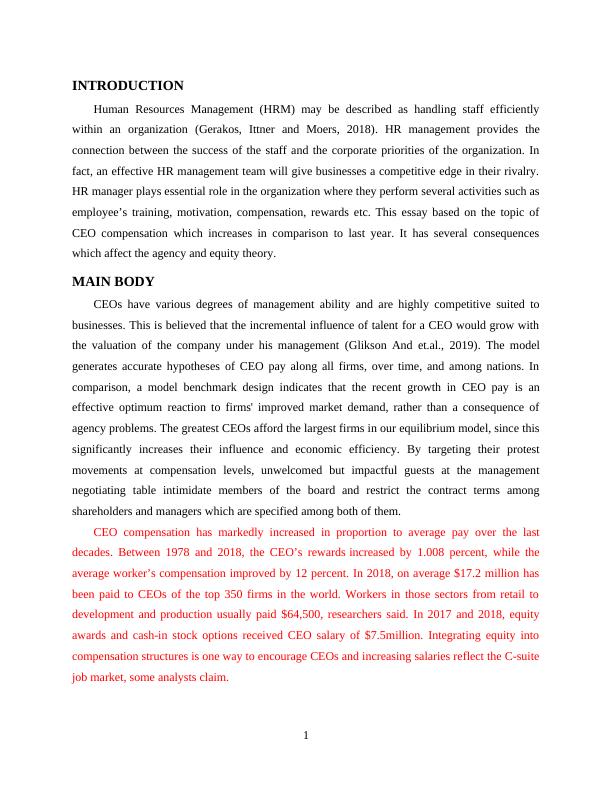CEO Compensation: Consequences and Effects on Agency and Equity Theory
8 Pages2016 Words46 Views
Added on 2023-01-09
About This Document
This essay explores the topic of CEO compensation and its consequences on agency and equity theory. It discusses the factors contributing to CEO pay, the relationship between CEO compensation and employee motivation, and the impact of CEO compensation on organizations. The essay also examines the role of HR management in handling staff efficiently within an organization. Read more on Desklib.
CEO Compensation: Consequences and Effects on Agency and Equity Theory
Added on 2023-01-09
ShareRelated Documents
End of preview
Want to access all the pages? Upload your documents or become a member.
Executive Compensation: Ethical Issues and Solutions
|5
|687
|38
Compensation System of UPS
|8
|1457
|37
Compensation and Benefits Analysis 2022
|11
|3004
|33
Recruitment and Selection Plan for Manager of Compensation Services
|7
|1751
|388



